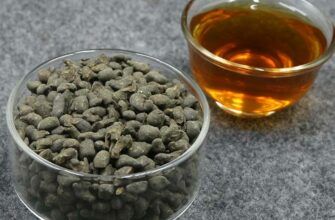Recently, more than 20 different studies have been carried out on the properties of green tea. These scientific studies have been carried out by independent third parties, with no intention of financial gain. Green tea does help with weight loss and suppresses appetite, and it also reduces the death rate from cardiovascular disease. After reading the information below, you will agree that green tea is an incredible drink when consumed in moderation.
- Reducing the chance of developing cancer
- Life Extension
- Reducing the risk of cognitive impairment
- Prevention of cardiovascular diseases
- Anti-stress effect
- Lowering LDL-C - cholesterol
- Green tea for weight loss
- Treatment of damaged skin with radiation therapy
- Treatment of inflammatory processes
- Harm of green tea
Reducing the chance of developing cancer
According to a study presented at the Sixth International Conference of Advanced Cancer Prevention, green tea polyphenols limit the growth of colorectal tumors. In rats treated with a substance that causes cancer. "Our results suggest that dietary polyphenol-fed rats are 50% less likely to develop colon cancer," said Dr. Heng Xiao of Rutgers University's Ernest Mario School of Pharmacology.
Life Extension
A study published in an issue of the Journal of the American Medical Association concluded that green tea consumption reduces mortality from many diseases. Including cardiovascular diseases (except death from cancer). The study was conducted by Tohoku University on 40,530 Japanese adults aged 40 to 79 years. They never suffered from a stroke or cancer.
Participants were followed up for 11 years during the study. Of these, the first seven years identified deaths from certain causes, and all 11 - deaths from any cause. Participants who consumed 5 or more cups of green tea per day had a 16% lower overall risk of mortality. And also on 26% there is a lower risk of mortality from the development of cardiovascular diseases.
The study says that the consumption of this drink is expected to significantly contribute to the prolongation of life. Cardiovascular disease and cancer are the two leading causes of death worldwide.
Reducing the risk of cognitive impairment
A study conducted by the American Journal of Clinical Nutrition in February 2006 concluded that green tea consumption was associated with a reduced risk of cognitive impairment in humans.
Prevention of cardiovascular diseases
In May 2006, researchers at the Yale University School of Medicine weighed the pros and cons in a review article. It contained more than 100 results from various studies on the health benefits of green tea. They pointed to what is called the "Asian Paradox". Namely, the decline in the rate of development of cardiovascular diseases and cancer in Asia despite the high level of cigarette smoking. They suggested that 1.2L of green tea per day (the amount that many Asians consume every day) provides the body with a large amount of polyphenols and other antioxidants.
“These compounds can work in a variety of ways to treat cardiovascular disease, including preventing platelets from clumping (this property of green tea has long been known to doctors, which is why they even prohibit patients from drinking green tea before blood clotting tests) and increasing blood cholesterol levels. ." says a study in the Journal of the American College of Surgeons. In particular, green tea prevents the oxidation of LDL-cholesterol (“bad” cholesterol). This, in turn, reduces plaque buildup in the arteries.
Anti-stress effect
A study published on August 22, 2006 in the Journal of Biological Psychology looked at the modification of the stress response when taking L-Theanine, a chemical found in green tea. The researchers “suggested that oral L-Theanine may produce an anti-stress effect by inhibiting neurons in the cerebral cortex.
Lowering LDL-C - cholesterol
In a double-blind, randomized, placebo-controlled study conducted by the Department of Cardiovascular Medicine at Vanderbilt Medical Center, Nashville, TN, 240 adults received either theaflavin from green tea extract as one 375 mg capsule daily or placebo. After 12 weeks, patients in the tea extract pill group had significantly lower levels of low-density lipoprotein and total body cholesterol. The authors concluded that theaflavin could be used along with other dietary products to lower LDL-C cholesterol.
Green tea for weight loss
A study published in the American Journal of Clinical Nutrition concluded that “daily consumption of tea containing 690 mg of catechins per cup for 12 weeks leads to a decrease in body fat, indicating that dietary intake of catechins useful for preventing obesity-related diseases and improving lifestyle.”
Treatment of damaged skin with radiation therapy
One German study showed that if green tea extract dissolved in hot water is applied externally to the skin and left for 10 minutes, doing this three times a day, it can help people whose skin is damaged by radiation therapy (after 16-22 days ).
Treatment of inflammatory processes
An August 2003 study on potential new applications in cellular and molecular biological sciences found the existence of a “substance with a new potential application (-)-epigallocatechin-3-gallate [component of green tea], for the prevention and treatment of inflammatory processes ".
Harm of green tea
Pharmacological evidence indicates that green tea polyphenols can cause oxidative stress and liver toxicity in vivo at certain concentrations. This means that consumers should exercise caution when consuming herbal products derived from concentrated green tea extract. Other evidence presented in reviews cautions against excessive consumption of green tea during pregnancy.
Read more:





